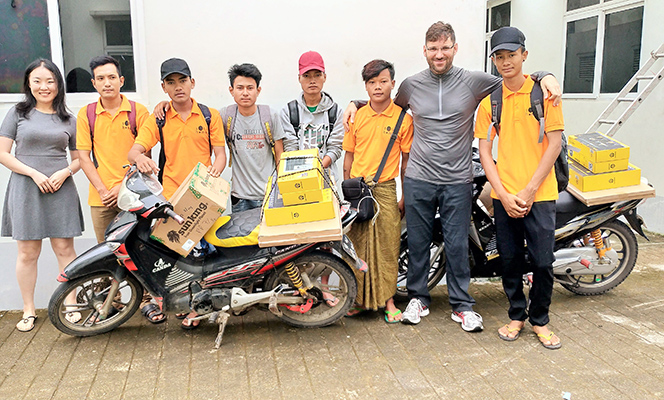
Our person in charge of the structuring of products and employees of the holding company R
The fund provides a loan to the holding company R and its group (hereinafter called Company R) engaged in the installment sale of solar power generation units to households through a Myanmar subsidiary, which is registered in Singapore, through the Estonian affiliate company (Crowdcredit Estonia OÜ) of Crowdcredit Funding LLC.
Company R was established in July 2016 to integrate the group’s financial function in Singapore because of tight foreign currency restrictions in Myanmar and the plan for expanding business to Asian countries in future. The Myanmar subsidiary was established in November 2016 and started operation on a trial basis. Company R also seeks the possibility of expanding its business into Cambodia, the Philippines, and Indonesia in future, in addition to Myanmar.
Myanmar has the highest non-electrified rate in Southeast Asia. According to the International Energy Agency (IEA), about 20 million people, equivalent to more than 40% of Myanmar citizens, fail to receive electricity. At present, Company R thinks the poor with a monthly income of USD 85 or less, which is called the Bottom of the Pyramid, live in non-electrified areas as the main customer bracket of the business. The bracket includes about 8 million households.
In Myanmar, a kerosene lantern is major source of light. Although Its price is low, it is highly inflammable and releases hazardous materials, which may cause accidents in houses such as burn injuries. It has no function to generate electricity, which forces people to use a paid service to charge a smartphone. The solar power generation unit generates electricity and brightens at night at a lower cost than a kerosene lantern does without damaging health by using natural energy.
Company R offers four types of solar power generation units differing in power generation capacity. Two-year continued use of a solar power generation unit permits customers to obtain ownership of the unit.
In Myanmar, the penetration rate of smartphones is as high at 80% and most smartphone holders live in urban areas where the population is concentrated. The customer bracket for Company R lives in non-electrified suburban areas where the communication environment is poor, and many residents still do not have cell phones. Therefore, one-third of customers pay fees in cash and 300 or more employees including part-time workers of Company R visit communities monthly to collect those. The company brings back the solar power generation units from customers paying no charge for around 20 days and at a low usage rate. The product collection rate of the products has remained at 2.3% or less since the start of operations.
The power generation system, which Company R offers, was developed to suit the climate of Southeast Asia. Its generating capacity is relatively stable even in the rainy season, when rain continues to fall all day, as is equivalent to 70% of that in the dry season (lighting time is about seven hours). Company R’s product balances high quality with an affordable price range and spreads rapidly.
Company R achieved a sales target of almost 2,000 units for four months in 2017 and will largely expand its businesses to sell 30,000 units in 2018. The company sets the sales goal that it sells the products to 800,000 households by 2021, which is equivalent to 10% of 8 million poor households.
Company R is still new and unprofitable as of October 2018; however, it will reach breakeven-sales and be profitable in 2020 according to its business plan. To achieve this ambitious growth, Company R plans to raise USD 2.5 million or more in the next year, in addition to our loans. We keep closely and carefully watching Company R’s activity, especially fundraising and business results.
(As described above, the main business of the fund is to provide a loan to Company R. But the Estonian group company is also engaged in acquiring and collecting a small number of short-term loans receivable made to individuals in Georgia.)
The fund consists of two investment transactions: loan to the Singapore-registered holding company R and purchase of loans made to individuals by Creamfinance Georgia LLC (Georgian subsidiary of Cream Finance Holding Ltd, a financial operator making loans to individuals in East Europe) via the P2P lending platform Mintos.
The fund makes the investment in USD over 25 months with the aim of achieving an expected rate of return of 8.0%.
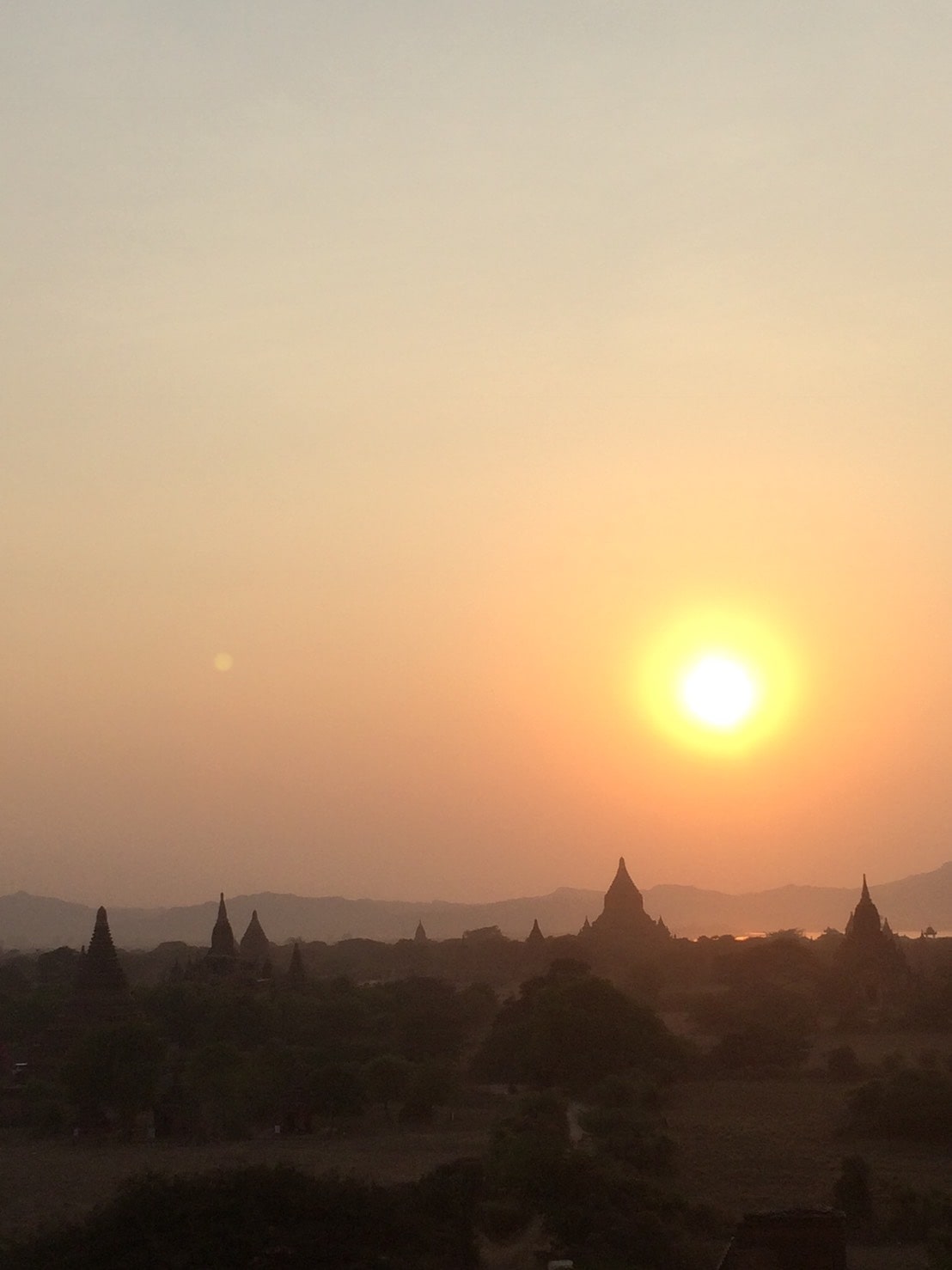
In Southeast Asia, 27 million or more households live in rural areas outside the coverage of the nationwide electric power grid. These households use kerosene, diesel oil, or candles as energy sources with issues such as low level of safety and the negative effect on health and the environment. By 2020, 150 million households in the world are said to use solar power generation systems.
This trend may also be seen in Southeast Asia. Consequently, we deliver light and electricity to households through democratization of access to energy. Affordable clean energy would help parents work outside the home to feed their families and allow children to study and grow in health within a secure environment.
Let’s deliver the power of solar energy to Southeast Asia.
Our family operates a chicken farm and used to have a diesel power generator as a power source to keep the property bright at night and to implement countermeasures against destructive animals. Once we switched to the system sold on installment by Company R monthly electricity expenses got cheaper, which made our life easier.
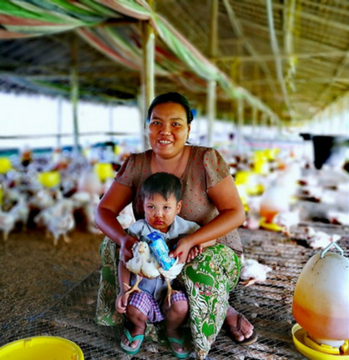
I make clothes for women and children in a village. I needed the light to work as a sewing worker and sell the clothes enough to feed my family.
But there was no light in the new house I moved to. Although I wished to introduce a solar power generation system, had no funds to pay initial cost. In such a case, I came to know Company R and immediately entered into a contract with the company. The light and sewing machine help me make beautiful and comfortable clothes even in the dark at night and offer the community those clothes.
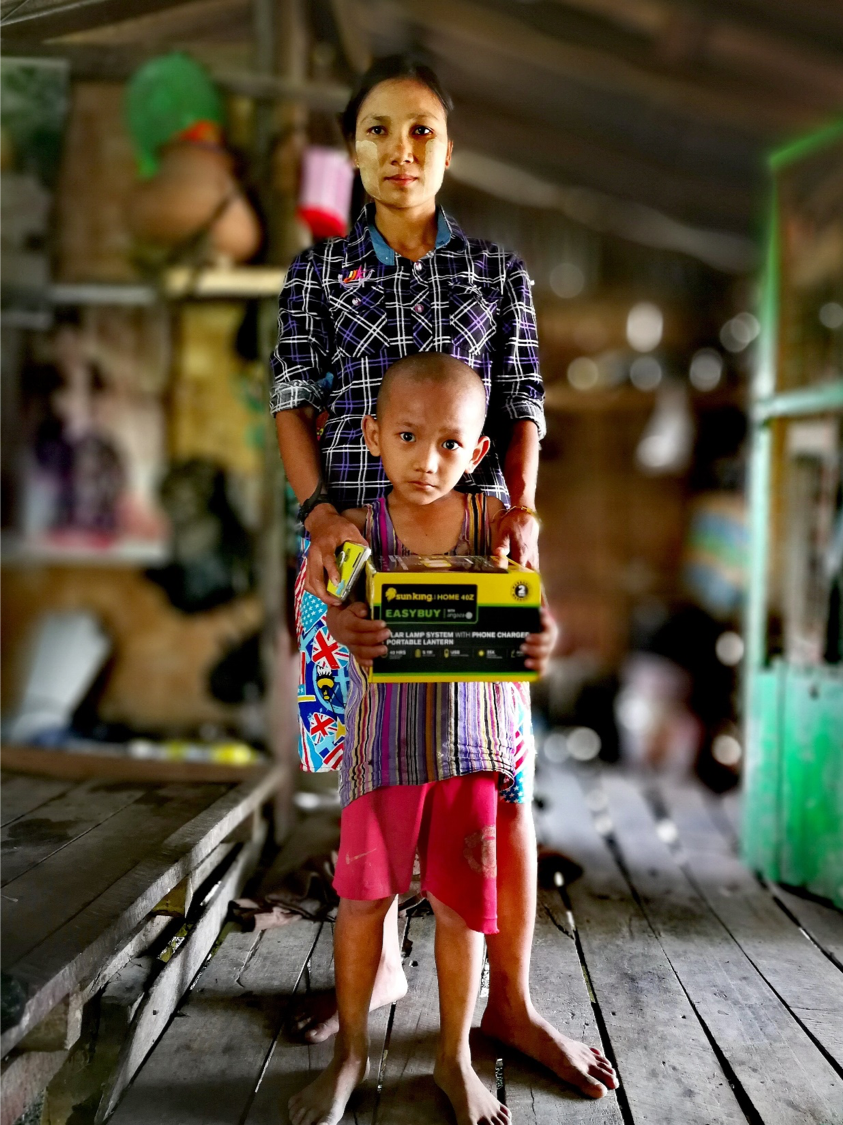
I sell onions and yams at a stall to feed my family in the village.
When I was 19 years old, I was forced to take care of my little 5-year-old brother because my mother worked in a remote town. Solar power generation changed my life. Thanks to this I was freed from going to a distant station to charge electronic appliances, and so I can eliminate travel expenses and allocate more time to care for my little brother.
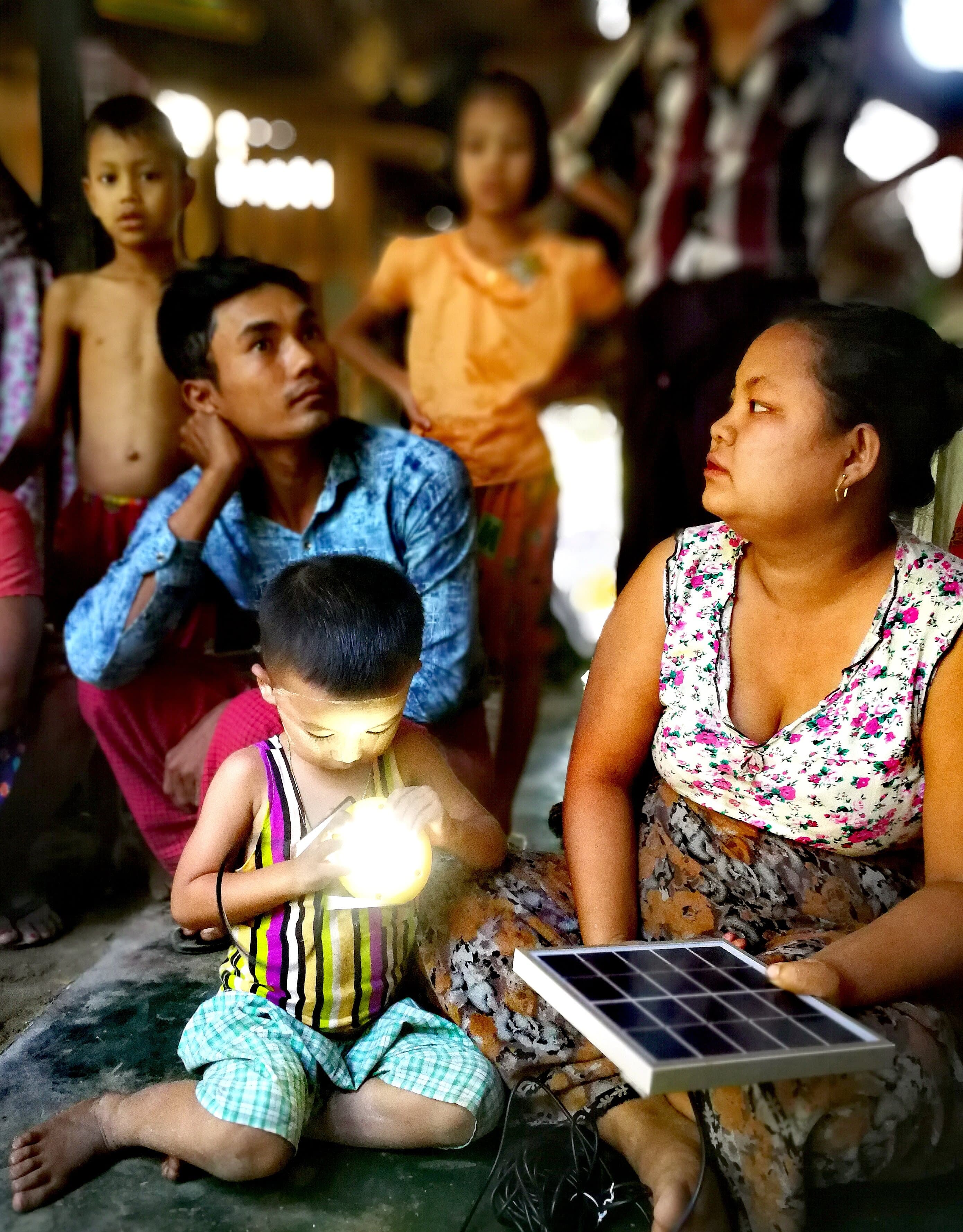
DISCLAIMER: This website is intended to provide information regarding the certain aspects of the business of CROWD CREDIT. It is not intended to be a complete description and is not intended as an offer or solicitation with respect to the purchase or sale of any fund.